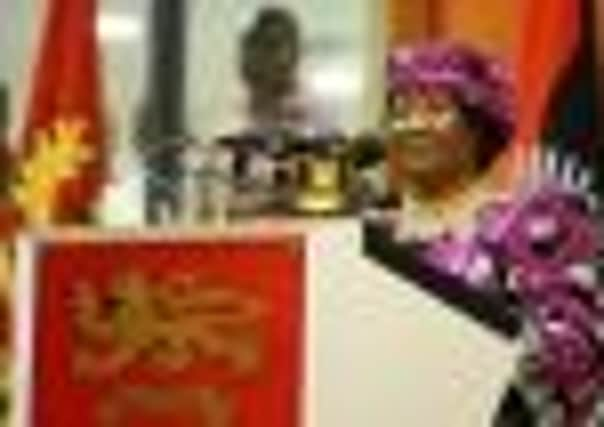Malawi: Joyce Banda pushes against tide in vowing to aid gay rights


Ms Banda, who assumed the presidency in April when her predecessor died, made the announcement yesterday in her first state of the nation address.
“Indecency and unnatural acts laws shall be repealed,” she said.
Advertisement
Hide AdAdvertisement
Hide AdBut repealing a law requires a parliamentary vote, and it is unclear how much political support Ms Banda has for sweeping changes in the impoverished and conservative nation.
The southern African country faced international condemnation for the conviction and 14-year prison terms given in 2010 to two men who were arrested after celebrating their engagement and charged with unnatural acts and gross indecency.
Then-president Bingu wa Mutharika pardoned the couple on “humanitarian grounds only” while insisting they had “committed a crime against our culture, against our religion, and against our laws”.
Mr Mutharika died in office in April. Ms Banda, who was vice-president, stepped in to serve out his term, which ends in 2014.
Elsewhere in her speech yesterday, Ms Banda said her government wants to normalise relations with “our traditional development partners who were uncomfortable with our bad laws”.
Her speech was applauded by human rights activists, but they cautioned that getting the necessary backing from parliament won’t be easy.
Human rights activist Undule Mwakasungula said: “The issue of homosexuality has been a contentious issue. Definitely it will raise controversy in parliament.”
In South Africa, the only African country with laws protecting gay rights, activist Mark Heywood said Ms Banda would have international support.
Advertisement
Hide AdAdvertisement
Hide AdHe said: “I hope she is persuasive enough in her own country.
“It’s really important for other African countries other than South Africa to move in this direction. Symbolically, I think it is very important for Africa.”
In Uganda, MP David Bahati introduced a bill in 2009 that proposed the death penalty for some homosexual acts. It drew international condemnation and has yet to become law. Homosexuality is illegal in Uganda.
After the bill was introduced, a Ugandan tabloid newspaper published a list of what it called Uganda’s “top homos”, including the name of a gay activist who was later killed in what some suspect was a hate crime.
Last year, Nigeria’s Senate voted in favour of a bill that would criminalise gay marriage, gay advocacy groups and same-sex public displays of affection. Under a newly added portion of the bill, those found guilty of organising, operating or supporting gay clubs, organisations and meetings could be sentenced to up to ten years in prison.
Last month, an anti-gay group in Liberia distributed fliers with a hit list of people who support gay rights. Earlier in the year Liberian MPs introduced two pieces of legislation that would make homosexuality punishable by a possible prison term. Liberian president Ellen Johnson Sirleaf – who won the 2011 Nobel Peace Prize – has vowed to preserve an existing law that makes “voluntary sodomy” a crime.